|
|
|
Editor's note
|
|
Hundreds of millions of people are staying at home, confined by tough measures imposed by governments to reduce the spread of the COVID-19 pandemic. Restrictions vary from country to country, but in some, with the exception of essential workers, people are being confined to their homes. Managing this is proving stressful and painful, particularly for people living in small spaces. Under the circumstances it’s worthwhile recalling the experience of one of the most famous prisoners in the world, the late statesman Nelson Mandela, who spent 27 years imprisoned. Gavin Evans shares his insights into how Mandela managed to stay fit in his tiny house
in Soweto before his arrest, and then over the decades in a tiny cell.
The race is on to create safe, efficacious treatments – or even a vaccine – that will guard against the novel coronavirus. Scientists around the world are working to develop the right therapies to tackle SARS-CoV-2. But, writes Jenniffer Mabuka-Maroa, too few African governments are pushing to get involved in clinical trials. This is a problem, given the continent’s rich genetic diversity.
|
Thabo Leshilo
Politics + Society
|

|
|
Top Stories
|
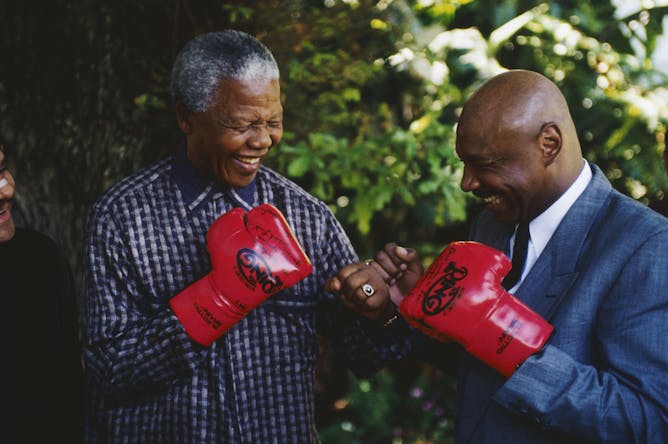
Former South African President Nelson Mandela with former American world boxing champion Marvin Hagler. The undated photo was taken after Mandela’s release.
Louise Gubb/GettyImages
Gavin Evans, Birkbeck, University of London
Prison life is about routine: each day like the one before; each week like the one before it, so that the months and years blend into each other.
|
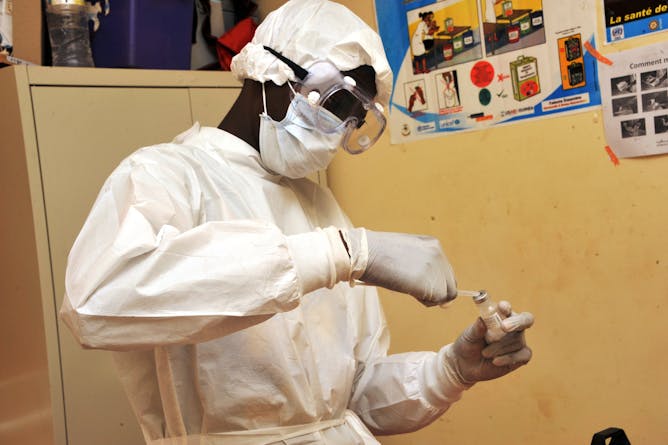
More clinical trials in African countries can help ensure that any vaccines or treatments developed cater to the continent’s genetic diversity.
CELLOU BINANI/AFP via Getty Images
Jenniffer Mabuka-Maroa, African Academy of Sciences
More countries on the African continent must urgently get involved in clinical trials so that the data collected will accurately represent the continent at a genetic level.
|
COVID-19
|
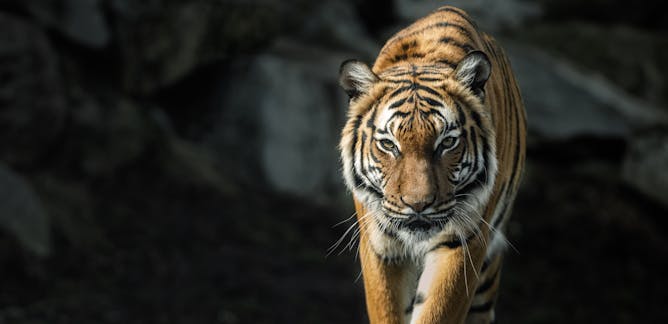
Steve Wylie, Murdoch University
A four-year-old female Malayan tiger has tested positive for COVID-19, with six other tigers and lions showing symptoms. It's the first known case of a 'wild' animal catching the disease.
| |
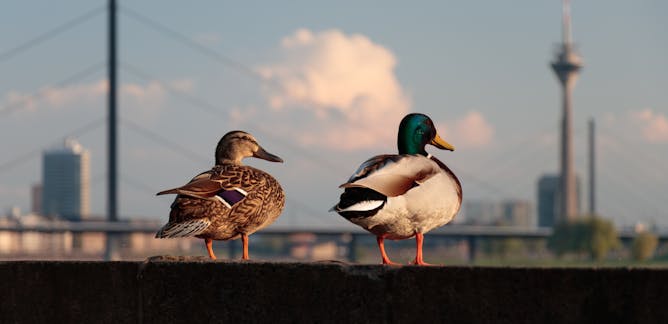
Becky Thomas, Royal Holloway
With wild boar in Barcelona and coyotes in San Francisco, the lockdown has transformed concrete jungles worldwide.
|
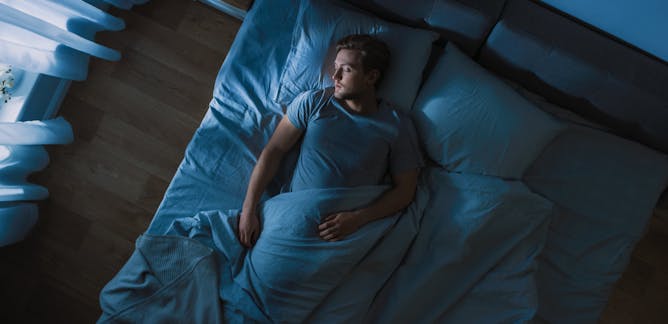
Cassandra Pattinson, The University of Queensland; Kalina Rossa, The University of Queensland; Simon Smith, The University of Queensland
Sleep supports our immune function and helps us deal with stress. During this uncertain time, making sleep a priority is more than self-care – it's essential.
| |
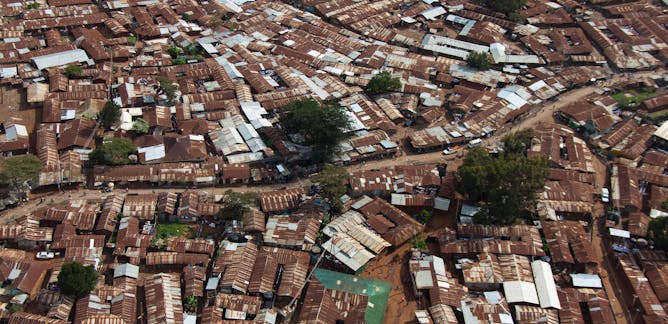
Eric Fèvre, University of Liverpool
Because low-income settlements are unplanned, crowded and without sanitation, there are many viral infections that cause health problems.
|
|
|
Environment and Energy
|
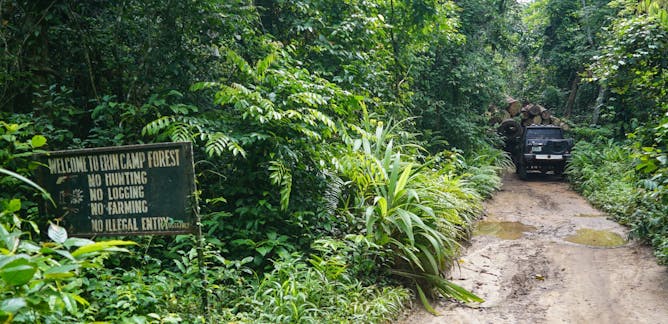
Tajudeen Amusa, University of Ilorin
Protected areas in Nigeria are generally hampered by limited funds and resources.
| |
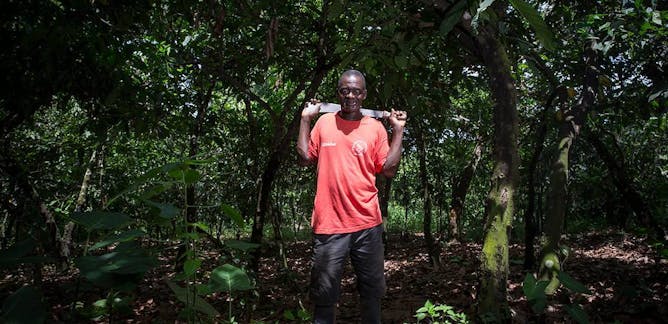
Stephen Appiah Takyi, Kwame Nkrumah University of Science and Technology (KNUST); Owusu Amponsah, Kwame Nkrumah University of Science and Technology (KNUST)
The rising demand on the world market for cocoa has put pressure on Ghana's forests.
|
|
|
En Français
|
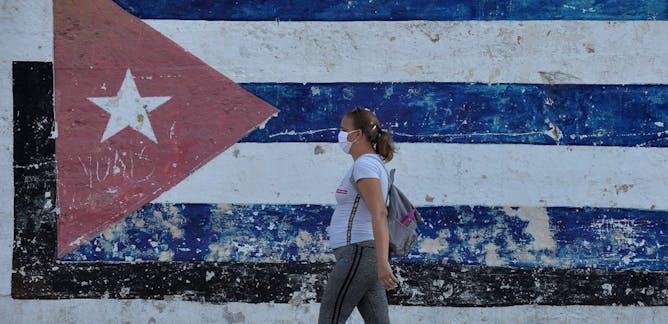
Janice Argaillot, Université Grenoble Alpes
La médecine cubaine est aujourd’hui appelée à la fois à protéger la population de l’île face au Covid-19 et à aider divers pays étrangers, dont l’Italie et la France.
| |
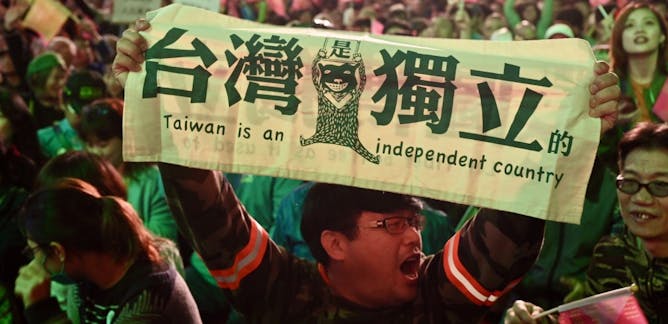
Emmanuel Véron, Institut national des langues et civilisations orientales (Inalco) – USPC; Emmanuel Lincot, Institut Catholique de Paris
En apportant son aide à de nombreux pays touchés par la pandémie, la République populaire de Chine cherche à faire diversion, de façon à exercer tranquillement une pression croissante sur Taïwan.
|
|
|
| |
| |
| |
| |
| |
| |
|
|
|
|
|
|
|